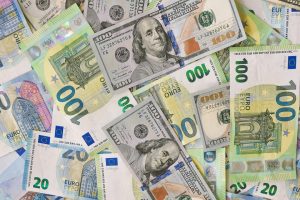Retail forex refers to the buying and selling of currencies by individuals, usually through online forex brokers. It is a form of currency trading that allows individuals to speculate on the movements of foreign exchange rates. The forex market is the largest financial market in the world, with an estimated daily turnover of over $5 trillion.
Forex trading involves buying one currency while selling another currency simultaneously. For example, if an individual believes that the value of the euro will appreciate against the US dollar, they might buy euros and sell US dollars. If the euro indeed appreciates, the individual can sell the euros for a profit.
Retail forex trading is different from institutional forex trading, which involves large financial institutions such as banks and hedge funds. Retail traders typically trade smaller amounts and use leverage to amplify potential profits. Leverage allows traders to control larger amounts of currency with a smaller deposit, increasing the potential returns but also the potential risks.
Forex trading is conducted through electronic trading platforms provided by forex brokers. These platforms allow traders to access real-time market data, execute trades, and monitor their positions. The platforms also offer various trading tools and indicators to help traders make informed trading decisions.
Retail forex trading is accessible to anyone with an internet connection and a trading account. Most forex brokers offer demo accounts that allow traders to practice trading without risking real money. This is a great way for beginners to learn about the forex market and develop their trading skills.
One of the advantages of retail forex trading is the ability to trade 24 hours a day, five days a week. The forex market is open around the clock, with trading sessions in Asia, Europe, and North America. This allows traders to react to news and events that can affect currency prices, such as economic data releases and geopolitical developments.
Retail forex trading also offers a high degree of liquidity, meaning that traders can enter and exit trades quickly and at a fair price. This is because the forex market is so large and involves so many participants, including banks, corporations, and governments.
However, retail forex trading also carries significant risks. The high degree of leverage used in forex trading means that traders can lose more than their initial deposit if their trades go against them. In addition, the forex market can be volatile and unpredictable, with sudden price movements that can wipe out a trader’s account.
To mitigate these risks, traders should educate themselves about the forex market and develop a trading strategy that suits their individual goals and risk tolerance. They should also use risk management tools, such as stop-loss orders and position sizing, to limit potential losses.
In conclusion, retail forex trading is a popular form of currency trading that allows individuals to speculate on the movements of foreign exchange rates. It offers high liquidity and the ability to trade 24 hours a day, but also carries significant risks. Traders should educate themselves about the forex market and use risk management tools to protect their capital.





